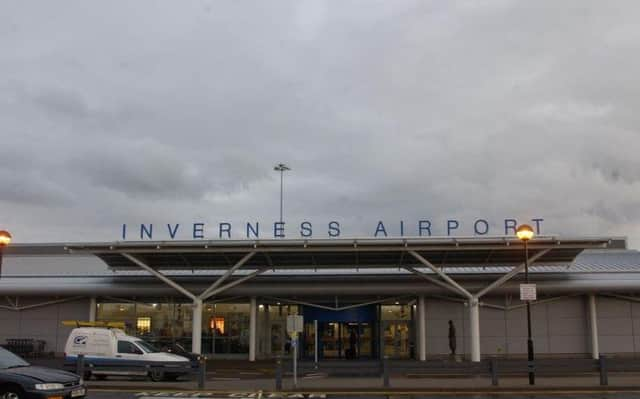Highlands and Islands Airports: Air traffic controllers strike is another fine mess from Scottish ministers – Brian Wilson


The dispute has been going on for years and shows no sign of resolution.
It is scarcely a matter which impinges upon most Scots but the underlying principles are familiar. Highlands and Islands Airports Ltd (HIAL) is a wholly owned Scottish government subsidiary which has created conflict through sheer arrogance and refusal to back down in the face of unwelcome evidence.
Advertisement
Hide AdAdvertisement
Hide AdMeanwhile, the ministers responsible for the quango are in hiding. Does Michael Matheson Cabinet Secretary for Transport, actually exist? As planes are grounded and ferries break down along the west coast, he is the invisible man while his depute, one Graeme Dey, resides at the safe distance of Angus and seems reluctant to come out.
The air traffic dispute is about centralisation. No surprises there. Devolved Scotland is a great believer in centralisation. An immediate consequence would be to bleed scores of good quality jobs that have existed in the islands for generations out of these places to re-locate them to Inverness.
Far from there being an overwhelming operational case for doing this, an internal Scottish government report, which the public was not meant to see, has highlighted the “major risks”. The report classified the project as “amber/red” which was one stop short of “undeliverable”. But still they press on and ministers stay silent, refusing to meet unions or local authorities.
Since 2018, these plans have been fiercely contested by employees and island communities. Yet the internal report found as recently as February a “lack of clear coherent visibility and transparency across the programme… significant shortfalls in programme management including risk management… resources and skills well below what would be required for a programme of this size, complexity and criticality…”
When this emerged, one might have expected the most hands-off minister to take an interest. Even the SNP MP for the Western Isles called for ministerial intervention. Not a bit of it. The management of HIAL has been allowed to press on as if neither the report nor the issues raised – not least about their own competence – existed.
There is also blatant hypocrisy in what Scottish ministers are presiding over. They purported to introduce “islands-proofing” of Holyrood’s actions. This is the clearest possible opportunity to “proof” the islands against a hostile act by one of their own quangos. However, it seems “islands-proofing” was meant as a headline, not a policy.
In times past, the board of Highlands and Islands Airports, with a strong, locally recognisable chair, would have intervened long ago to force a sensible conclusion. There is no longer any pretence, however, of these bodies acting independently of government. far less representing the interests of the places they serve.
The chair of Highlands and Islands Airports is, rather puzzlingly, also chief executive of the Law Society of Scotland and a member of the Scottish Funding Council. And so the docile quango circuit continues. It is not apparent if any non-executive board member of HIAL even lives in the region and certainly none in the islands affected by these plans.
Advertisement
Hide AdAdvertisement
Hide AdThis is in line with policy on the ferry companies where neither CalMac nor CMAL has a single islander as a board member. In that arena, Ernst & Young has been hired by the Scottish government to inquire into how ferries are procured in the light of the Ferguson debacle, as the cost of two modest vessels heads towards £300 million.
It does seem odd that the armies of politicians and civil servants in Edinburgh now need consultants to scrutinise a policy “catastrophe” – the verdict of Holyrood’s Rural Affairs Committee – which it is within the power of government alone to fix. What does it tell us about the calibre of the Scottish government’s own personnel and – again – the complete absence of ministerial leadership?
Try telling anyone in communities served by these organisations that devolved government has brought government closer. Rather, it seems to bring chaos to everything it touches by land, air or sea.
A message from the Editor:
Thank you for reading this article. We're more reliant on your support than ever as the shift in consumer habits brought about by coronavirus impacts our advertisers.
If you haven't already, please consider supporting our trusted, fact-checked journalism by taking out a digital subscription.
Comments
Want to join the conversation? Please or to comment on this article.
